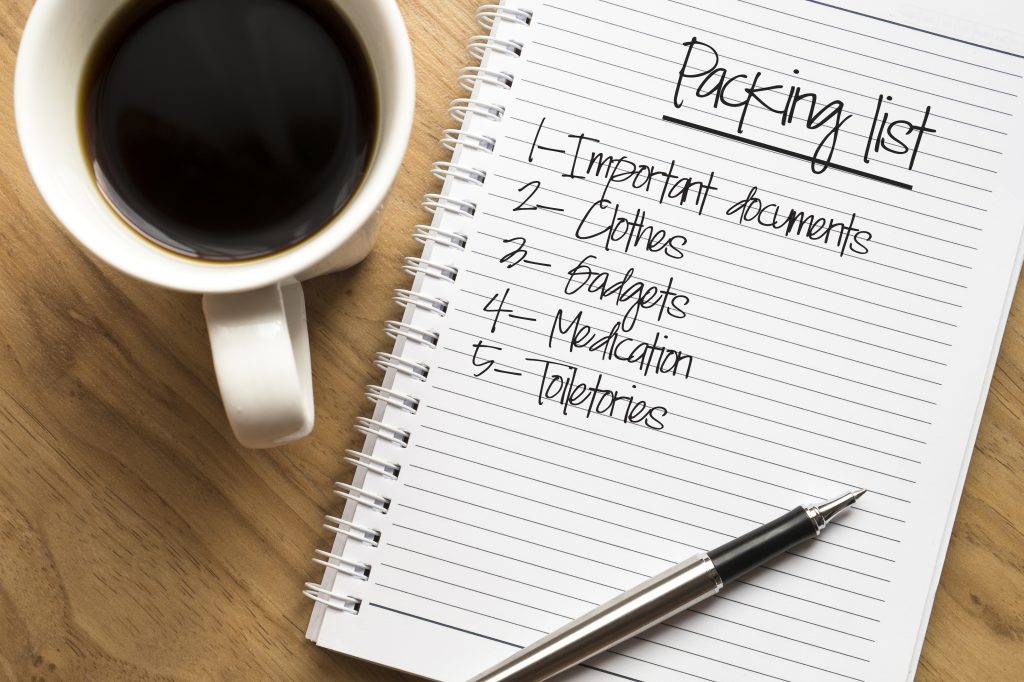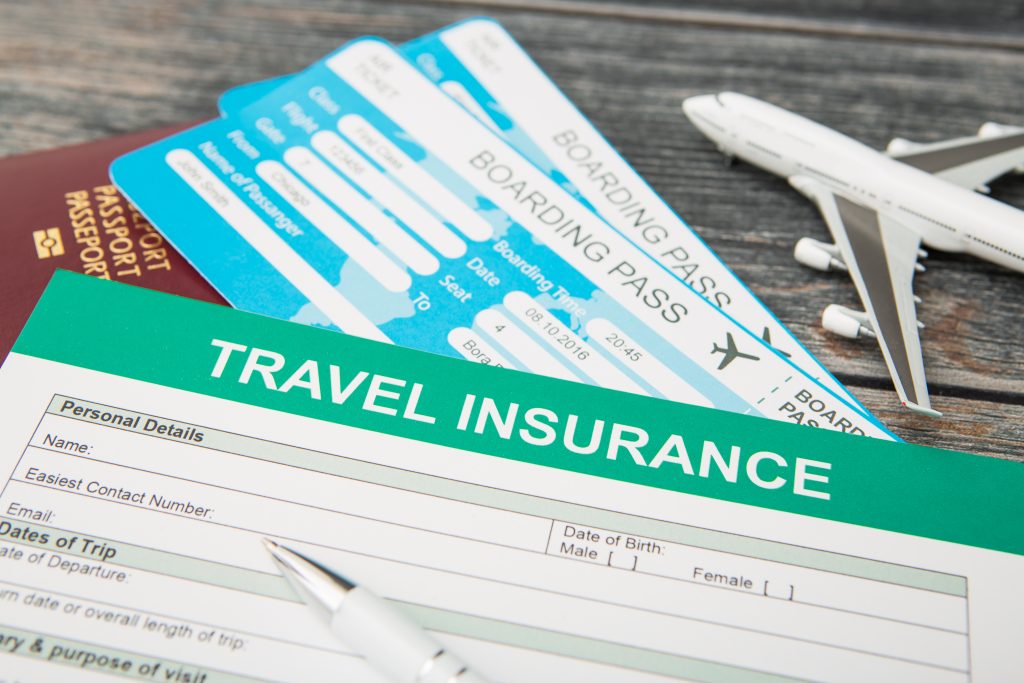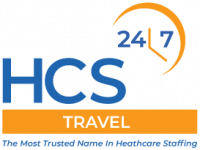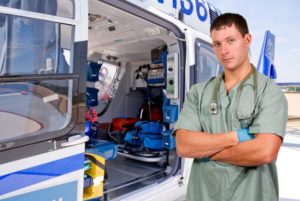One of the most exciting things about being a travel nurse is the freedom to explore new places for longer than a typical vacation period. However, as with every type of travel, packing can feel daunting.
Most travel nurse assignments are for multiple weeks at a time and can include longer stays in places where you may not have access to things you are used to. You’ll need all your workday essentials, along with appropriate resources for down time or going out. Factor that in with an ongoing pandemic, and you might need more resources than you think.
Necessary supplies will vary by your location, housing set up, and even by season. Make sure to do your research ahead of time: think about weather, how you plan to spend time off, whether you’ll travel back and forth from home, and if you’re bringing your pet along.
Preparing for your first travel nurse job is one part strategizing and one part packing. Whether you’re headed somewhere near or far, here are our tips for planning and packing for your first assignment.
Prep Your Packing List
The life of a travel nurse isn’t all work. While your focus will certainly be on your job, you will have downtime no matter where you are working. With this in mind, the best packing strategy involves a list — but not the type you think.
Before you begin compiling items, we recommend sitting down with a piece of paper, or your phone, and walking through your weekly routine. What do you do Monday through Friday, and how does it change up on the weekends? Routines are essential for travel nurses because they help you adjust to a new environment (and it helps offer structure when you’re planning ahead).
Travel work is unique because you have to prepare for daily life in addition to your work schedule. Consider what days you prefer to go grocery shopping, or what you like to do before or after work. Will you work out? If so, will it be in your residence or at a class? If your pets are traveling with you, what kinds of supplies will they need (and how much should you take, if you can’t access supplies in your new location)?

Seemingly mundane aspects of life should go on your list, from your morning routine, to hygiene practices, to things that are essential for your health like medicine (even your morning coffee). Make sure to consider your mental health by asking yourself what makes you feel better if you’re stressed, lonely or sad — bring your favorite books, movies, or something that could cheer you up.
Write all of these out so you have a visual reference and a starting place when thinking through your packing list.
Build Out Your List
Now that you have a framework for what you expect to do each week, make a list of necessary items for each of those activities. This will likely look like separate lists, perhaps one for your working hours, one for personal time, one for daily prep (like personal essentials), one for fun activities, and one to maintain your health.
Here are some basic essentials that you will need no matter what:
- Your work uniform, including shoes
- Essential work items
- Personal care products (enough to last the duration of your trip)
- Clothing for time off, weather appropriate
- Medicines and supplements
- Copies of important documents (digital or physical)
- Electronics and charging devices
Other categories could include pet supplies, specific food items (if you have dietary restrictions), entertainment, and something to remind you of home.
Consider Where You’re Staying
Travel nurse housing sites may vary by location, or by contract. You could be living in an extended-stay hotel for a few weeks, in an apartment, or even in a house. Nurse First allows each employee to choose their own housing, this will give you a wider range of options and the freedom to choose what works best for your lifestyle and preferences.
If you are staying in a house or AirBNB, ask housing managers what essentials are provided for: will you have cooking tools, cleaning supplies, towels? Most accommodations will provide essential furniture, but it’s always good to check what will be provided so you aren’t blindsided by a missing item (like a television or microwave).
If you plan to cook, and your temporary location has a kitchen, make sure to ask which essentials will be provided for. If you have a specific dietary requirement, or perhaps you prefer to drink smoothies every day before work, make sure those items will be available at your location (and if not, add them to your list).
Start by Packing Essential, Hard-to-Find Items
As you start your packing process, begin with the items that you couldn’t easily find or buy at your upcoming destination (if the need arose). This can include specific clothing, medications, pet items, specific food items, or even personal items like books, tech pieces, or toiletries. These are the things you absolutely cannot forget.
Pack these things first so that you can ensure you won’t forget them. It will also help you better understand where you are going because you will have to understand what stores are available within your city, or if you can have something shipped easily.
This helps take the pressure off of packing early on by making sure that all of your essentials are the first things in your suitcases.
Pack Flexible Clothing Items
Make sure that the non-work clothes you bring can be worn in a variety of contexts, and can be combined to make multiple different outfits. Less is more when it comes to traveling, but if you anticipate only being able to do laundry once a week, make sure that you have enough clean clothing for each day.
Don’t forget layering pieces and other essentials like rainwear, undergarments, sleepwear, workout clothes, swim attire (if going somewhere warm) or inclement weather gear (if headed somewhere cold).
Avoid bringing items that need to be specially cleaned, it will help you reduce excess expenses like dry cleaning and prevent any wasted down time trying to figure out where to go.
Don’t forget comfortable shoes, and we don’t just mean your work shoes. Make sure you have appropriate shoes for outdoor activities, for exploring your new city, and for the weather.
Documents & Other Essential Travel Gear
These items will likely take up less space, but make sure you have them with you on every nursing assignment. If you’re traveling by plane, we recommend bringing all of these in a carry on.

- Any documents about workplace standards for your new location
- A copy of your current nursing contract
- Essential credit and debit cards
- Drivers License
- Social security card
- Copy of birth certificate
- Copies of all of your nursing licenses
- A list of essential work phone numbers (your manager, the agency)
- A list of emergency contacts (family and friends)
And if you will be traveling in your own vehicle, make sure to have copies of your insurance and registration.
Entertainment & Personal Items
Travel nursing is exciting, but you will have down time and you might feel lonely. Make sure you leave room to pack items that will give you something to do, or help you feel more at home.
Bring photos of family, pack a book or two to read, make sure you can watch movies or television shows in your temporary housing set up, and so on.
Packing for your first travel nursing assignment can be simplified if you plan ahead and do your research. Make sure you consider all the aspects of your life, not just work, as you prepare for your first professional adventure. Interested in starting your travel career? Contact us today!




